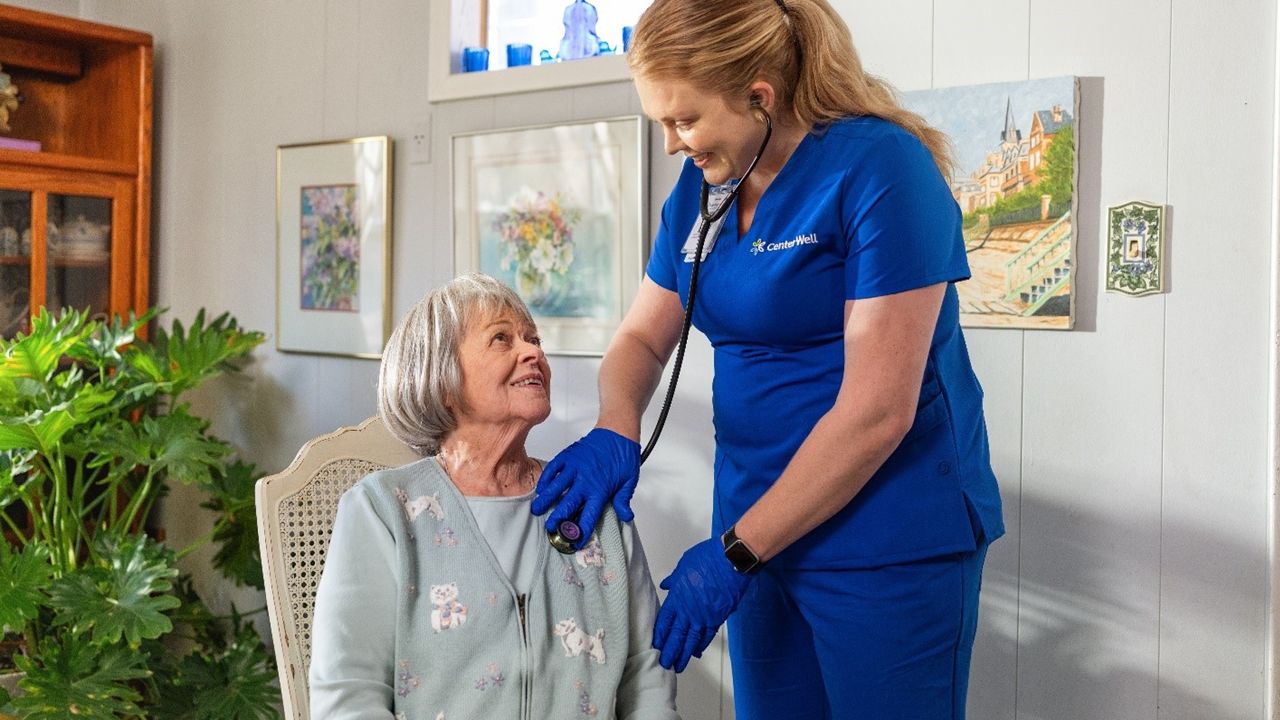Since joining CenterWell over a year ago, I have had the honor of meeting some of our CenterWell Home Health clinicians in the field and getting brief glimpses into the amazing care that happens every day. A memorable home visit took place in Louisville where we were greeted by a blast of heat as we opened the door of a small apartment in a senior complex. It didn't take long to realize that the heat was coming from an oven turned on and left open, because our patient, an elderly woman without any local support, was feeling chilled, and the building heat was not yet turned on for the season. Our CenterWell Home Health nurse empathetically examined and spoke to the patient, who was upset and scared, and then connected with the patient’s primary care provider to prescribe a needed medication. When the patient got tearful about how she would get the medicine, our nurse assured her that it would be delivered to her apartment door that evening. I was much less useful during this encounter, but I did manage to put on gloves and tidy up the apartment, taking the patient’s garbage out – it was the least I could do as my teammate was doing the important work of caring for our patient. I was struck not only by the clinician’s deep level of dedication and caring attitude, but I also came away with a renewed appreciation for what’s possible in a home care setting. Our home health nurse helped the patient navigate a complicated and confusing system, offering kind guidance and support that suited the situation.
I believe the home is the next frontier in medical care, and for many conditions, providing care in the home is the best way to ensure high-quality outcomes with a more personalized patient experience. That’s why our Home Solutions segment, including CenterWell Home Health and onehome, is an important part of Humana’s integrated health approach and can be particularly powerful when paired with other services like primary care and pharmacy delivery.
The home is the preferred site of care for many seniors. And with today’s technology, we’re able to do much more in the home than ever before, such as primary care at home, mobile imaging, dialysis, infusion, skilled nursing facility services at home, and hospital-level care at home. Care in the home can also be safer, resulting in fewer falls and infections than facility-based settings. Our clinicians can observe and understand a patient’s environment and better address social determinants of health.
In CenterWell Home Health, we’re working hard to realize the potential of home-based care. We’re proud that more than 56% of CenterWell Home Health branches earned a 4.5- or 5-Star rating for quality of patient care (QoPC) from the Centers for Medicare and Medicaid Services, averaging a 4.29 QoPC Star Rating versus the CMS industry average of 3.25.
CenterWell Home Health has earned recognition from the American Diabetes Association for providing outstanding self-management education and support to diabetes patients, like with our patient, Daron. CenterWell’s free Daily Difference with Diabetes program empowers patients to develop healthy behaviors in areas like monitoring health indicators and taking medications.
CenterWell Home Health has begun using an innovative AI-enabled digital wound management solution, which allows clinicians to efficiently capture vital wound details with a simple picture. It has proven instrumental in clinical decision-making, accelerating wound healing time by 35%, which equates to approximately 13 days faster healing per wound, while also improving the experience for both clinicians and patients. One of our patients, Jim, had his wound successfully treated using this technology.
Still, there are challenges to scaling home-based care in the U.S. While the country is growing older, there are not enough health practitioners to meet demand. That’s why we continue to invest in workforce development, partnering with more than 50 colleges and universities to give student nurses the opportunity to shadow our home health clinicians and gain experience with a professional before stepping out in their first job. We have partnered with Emory University to create the CenterWell Home Health Lab to simulate home health visits, in the hope that it will not only provide more practical training, but it might also inspire nursing students to consider a home health career.
As patients and healthcare providers increasingly utilize home-based care, we must begin to incentivize quality and accountability of care through value-based models. We must develop opportunities for home health agencies to pivot into a model that relies on value and results and must invest in the data and analytics infrastructure to really understand the needs of our patients.
This is an exciting time in the industry, and it’s gratifying to play a role in the growth and development of home-based care.


